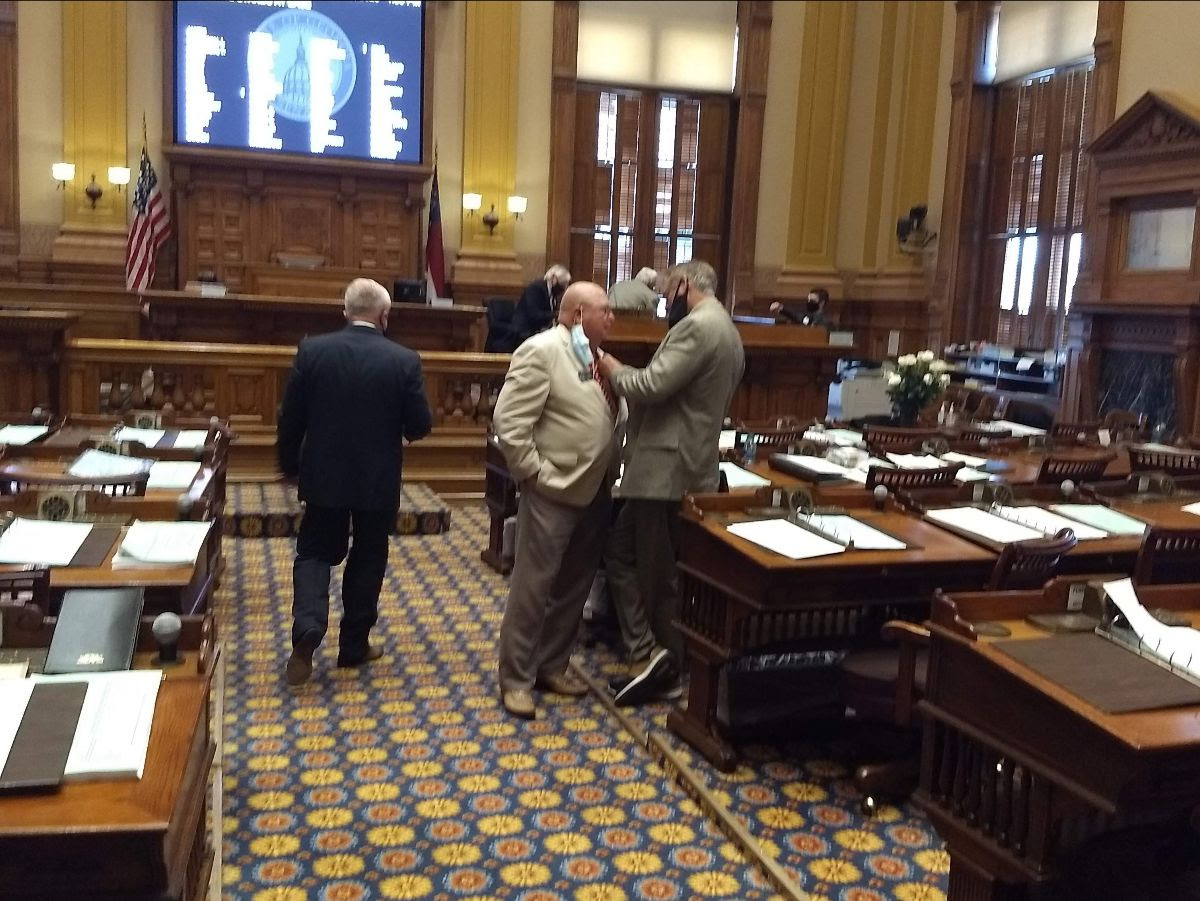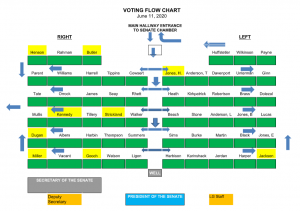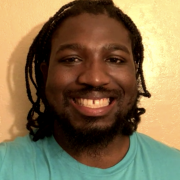This Father’s Day, I remember how proud my dad was when I won my election to the Georgia Senate, but if he were with us today, he would have been ringing his hands at the thought of me returning to work.
It was a rough week at Georgia’s State Capitol. After three months of mostly staying at home to avoid Covid, and the Atlanta shooting of Rayshard Brooks the weekend before, the agitation in the air had me pretty nervous about returning to the Capitol. Plus, I wondered which bills the majority party would choose to act on, given the hundreds of bills that would remain on the table due to the difficulty of legislating while observing physical distancing rules.
Monday morning there were police everywhere — even on the roofs of buildings. Since police presence was not as intense the rest of the week, I can only assume they were there due to a NAACP march that culminated at the Capitol at 10 am.
I took a little walk around the Capitol Monday morning to watch the NAACP march. Unfortunately, I missed the rally, but I was so happy to see and talk with lingering attendees back inside the Capitol, affirming that it truly still is the People’s House.
The Best Laid Plans Go Awry
The careful protocols the Senate established to keep legislators and staff physically distanced from one another all went out the window first thing Monday morning when many members of the Republican Caucus decided to ignore the rules. To limit the number of people in the Senate chamber, most Senators were supposed to watch the session from their offices or on Capitol grounds until it was time to speak or vote. By Tuesday, I realized they weren’t giving us enough time to get to the chamber and back between votes, so most of us eventually gave up and remained in the chamber.
While the majority of Senators wore masks, some Republicans outright refused. I noticed that many lobbyists and all the police went without masks. When I asked them about it, they didn’t offer good answers. I was so frustrated that I went to the Senate well on Friday (video) to remind my colleagues that wearing a mask is a science-based way to protect each other, and a necessary measure for our police force to keep all of us, members of the public, and our families safe.
Georgia’s Bare Bones Budget Gets Slashed Again
HB 793, the FY 2021 General Budget, came to the Senate floor on Friday. It called for painfully deep cuts in essential services, including a $1 billion cut to local school funding, a $122 million cut in Behavior Health and Developmental Disabilities funding, $127 million in Public Health and Human Services, $250 million less for Georgia’s universities and colleges and $40 million less for our technical schools.
In March I gave the late Sen. Jack Hill, Senate Appropriations chairman, the courtesy of informing him that I would probably vote against the budget. He replied by telling me that it’s a long-standing tradition for the Senate to pass the budget unanimously, and instructed me that “We must govern.” I am proud to report that not a single Democrat voted for this budget. We understand the steep financial challenges we face due to the pandemic, but we also can no longer ignore the bad decisions that made a terrible situation so much worse. Well before the pandemic, years of tax cuts, special interest tax breaks, a refusal to expand Medicaid, and the defunding of critical programs have left us with severely underpaid state employees, underfunded schools and mental health services, and an unconscionable number of uninsured Georgians. Georgia’s Quality Basic Education (QBE) funding formula had been consistently underfunded since the early 2000s. Often these “temporary” cuts become permanent. Georgia can’t afford another lost decade of under-serving its communities.
Another important “no” vote this week was my vote against confirming the Governor’s 200 or so board appointees. These individuals have mostly been chosen, sworn in, and are already doing their jobs, so confirmation by the Senate is basically a “rubber-stamp” vote, and I wasn’t elected to be a rubber stamp. Plus, many of the appointees govern with values very different from the values I campaigned on, and their positions will continue to shape education, social justice, healthcare and many other policy areas for years to come.
The Hate Crimes Bill Takes a Troubling Turn
In my last email I mentioned that there might be some back and forth between the House and the Senate about HB 426, the Hate Crimes Bill. Sure enough, by mid-week, the Lt. Governor announced a new version. There were some good things in his bill, but also some very bad things. The Speaker of the House objected to the bill and urged the Senate to pass the House version.
By Friday, following behind the scenes negotiations, instead of advancing the Lt. Governor’s bill, the Senate Judiciary Committee considered the House version of HB 426 but added law enforcement as a protected class of citizens. After a heated debate, it passed in Committee along party lines. It immediately drew ire from the Georgia NAACP who went from supporting it to strongly opposing it. Law enforcement officers are an important group of people who perform a difficult and valuable public service. But law enforcement already enjoys special protections in existing state laws. Senator David Lucas said it well (watch video).
The Hate Crimes Bill is expected to be on the Senate floor on Tuesday and the Senate Democrats will stand strongly united against it in its current form. Please take time before the bill comes to the Senate floor on Tuesday to call or email all the Senate Republicans to tell them to remove occupations from HB 426.
Legislative Highlights
I’m proud to join my Democratic Caucus in signing the Georgia Justice Act, a slate of 10 bills that have now been bundled together to create sweeping criminal justice reform. The Act includes reforms that had previously been introduced and adds new measures to address recent issues.
Some other noteworthy bills that moved forward this week:
-
- The Senate passed HR 1023 which allows anyone in the state to sue local or state government for acts that may be unconstitutional. Just a few years ago, a group of citizens sued the state over the private school tax credit scholarship program arguing that it was unconstitutional to use public dollars to fund private religious schools. The GA Supreme Court ruled against the group, stating that they didn’t have legal standing to bring such a suit. This law would have prevented that outcome. I voted yes.
-
- The Senate passed HB 888 which would reduce surprise hospital billing by requiring insurers to cover certain care regardless of whether the provider was in or out of network, and prohibits certain balance billing. I voted yes.
-
- The Special Judiciary Committee heard HB 903, originally a short traffic citation bill that was “hijacked” with new language calling for a referendum to potentially allow on-line sports betting administered through the Georgia Lottery, which could then allocate 20% of proceeds to Pre-K and the HOPE Scholarship. I voted against the bill. The Georgia Lottery has not experienced an economic downturn, so current funding for Pre-K and the HOPE Scholarship are not in jeopardy. For government services that benefit all Georgians such as education, I prefer progressive tax structures.
- After a very lengthy debate, HB 545, passed largely along party lines. The bill severely limits the conditions and time-frame that an agricultural operations facility can be sued for nuisance. I voted no.
What’s Coming Up:
This week we were in session Monday – Saturday. Next week we are currently scheduled to be back in session all week, ending the session, Sine Die, Friday, June 26th.
Some of you might have noticed that I have not asked for campaign contributions for over six months. This is not because I don’t need the money, but because the Georgia Ethics Commission chose to interpret Georgia law banning fundraising during session to include the “suspended” session for the last three months.
I do have Republican opposition in the November 2020 election, so if you have appreciated these emails and are able to make a contribution, you can do so after June 26th. At that point, I will need all the help I can get! Thank you in advance for your consideration.
|
|
|
|
|







 Deontez Wimbley lives in Senate District 40 in north DeKalb County and works as a health educator.
Deontez Wimbley lives in Senate District 40 in north DeKalb County and works as a health educator.